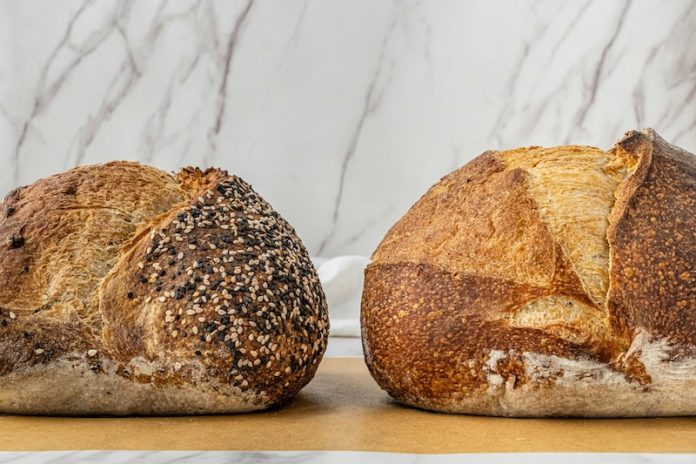
Bread is a staple food for many people, but if you have diabetes, choosing the right type of bread is important.
Bread can affect blood sugar levels because it’s made primarily of carbohydrates, which the body breaks down into sugar.
Eating the wrong kind of bread can cause blood sugar spikes, making it harder to manage diabetes.
Fortunately, not all bread is created equal, and some options are much better for blood sugar control.
When choosing bread, one of the first things to consider is its glycemic index (GI). The GI measures how quickly a food raises blood sugar levels.
Foods with a high GI, like white bread, cause blood sugar to rise rapidly, while low-GI foods have a slower, more gradual effect. Research has shown that eating low-GI foods helps people with diabetes keep their blood sugar levels steady.
Whole-grain bread is often a better choice than white bread for people with diabetes. Unlike white bread, which is made from refined flour, whole-grain bread contains the entire grain, including the bran and germ.
This makes it higher in fiber, which slows digestion and prevents rapid spikes in blood sugar. A study published in The Journal of Nutrition found that people who ate more whole grains had better blood sugar control and lower insulin levels compared to those who ate refined grains.
Look for bread made with 100% whole grains, and check the label to make sure it’s high in fiber—at least 3 grams per slice is a good target. Some examples of healthy whole grains to look for include whole wheat, oats, rye, and barley.
Another great option for people with diabetes is sprouted grain bread. Sprouted grains are made from whole grains that have been allowed to germinate or sprout before being ground into flour. This process makes the bread easier to digest and lowers its GI.
Sprouted grain bread also tends to be higher in fiber, protein, and important nutrients like B vitamins. A popular brand of sprouted grain bread is Ezekiel bread, which is widely recommended for people managing blood sugar levels.
Sourdough bread is another option worth considering. While it’s often made with white flour, sourdough has a lower GI compared to regular white bread. This is because the fermentation process used to make sourdough creates acids that slow down digestion.
A study published in Diabetes Care found that eating sourdough bread led to smaller blood sugar spikes compared to bread made with the same ingredients but without fermentation. However, it’s still important to choose sourdough bread made with whole grains whenever possible.
Low-carb bread is another alternative for people with diabetes. These breads are specifically designed to have fewer carbohydrates per slice, often made with almond flour, coconut flour, or flaxseeds instead of traditional wheat flour.
While low-carb bread can be a great way to keep carbohydrate intake under control, it’s important to choose brands that are also high in fiber and free from unnecessary additives.
For those who enjoy experimenting in the kitchen, making your own bread can be a great way to control the ingredients and ensure it’s diabetes-friendly. Using ingredients like almond flour, flaxseeds, or psyllium husk can create a low-carb, high-fiber bread that’s gentle on blood sugar levels.
It’s also important to pay attention to portion sizes, even when eating healthy bread. A single slice of whole-grain or low-carb bread might fit into a balanced meal, but eating multiple slices at once can still lead to higher blood sugar levels.
Pairing bread with protein, healthy fats, or vegetables can help slow digestion and minimize blood sugar spikes.
In summary, the best bread for people with diabetes is one that’s low in carbohydrates, high in fiber, and made from whole or sprouted grains. Whole-grain, sprouted grain, sourdough, and low-carb breads are all excellent choices.
By reading labels carefully and paying attention to portion sizes, people with diabetes can enjoy bread as part of a healthy and balanced diet without compromising their blood sugar control.
If you care about diabetes, please read studies that pomace olive oil could help lower blood cholesterol, and honey could help control blood sugar.
For more information about health, please see recent studies that blueberries strongly benefit people with metabolic syndrome, and results showing eggs in a plant-based diet may benefit people with type 2 diabetes.





